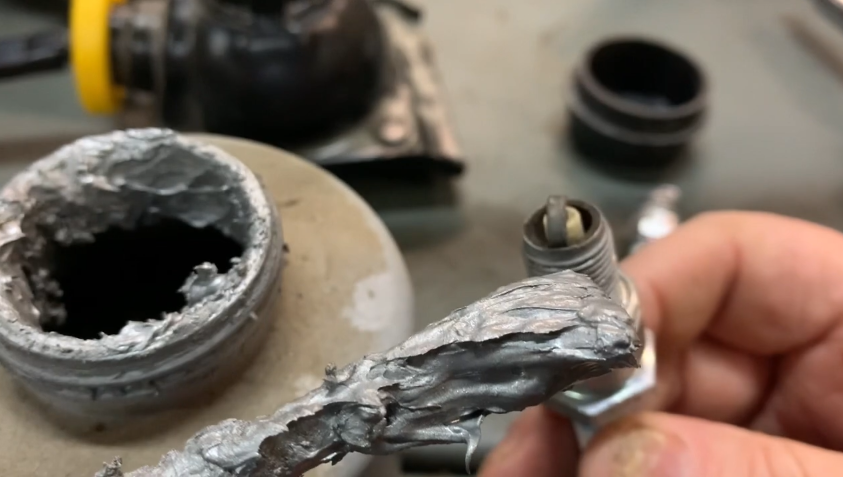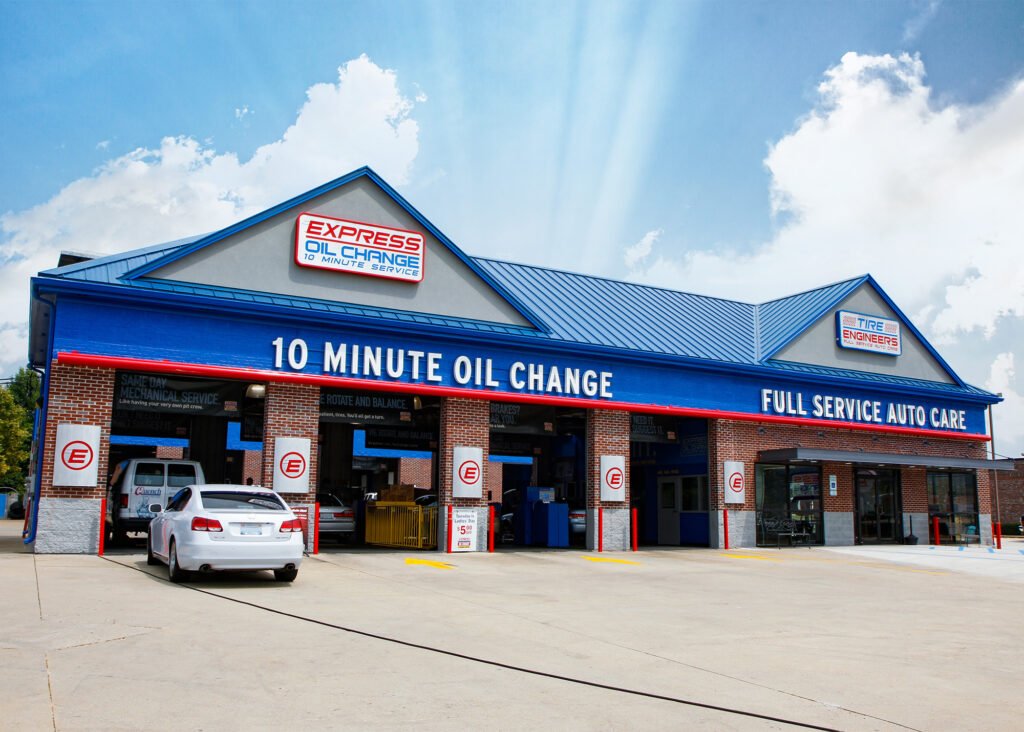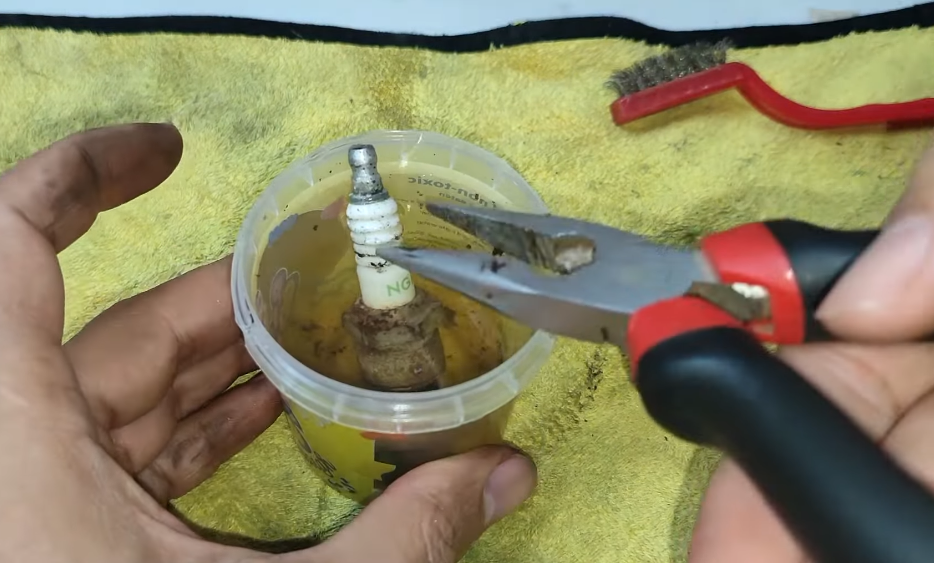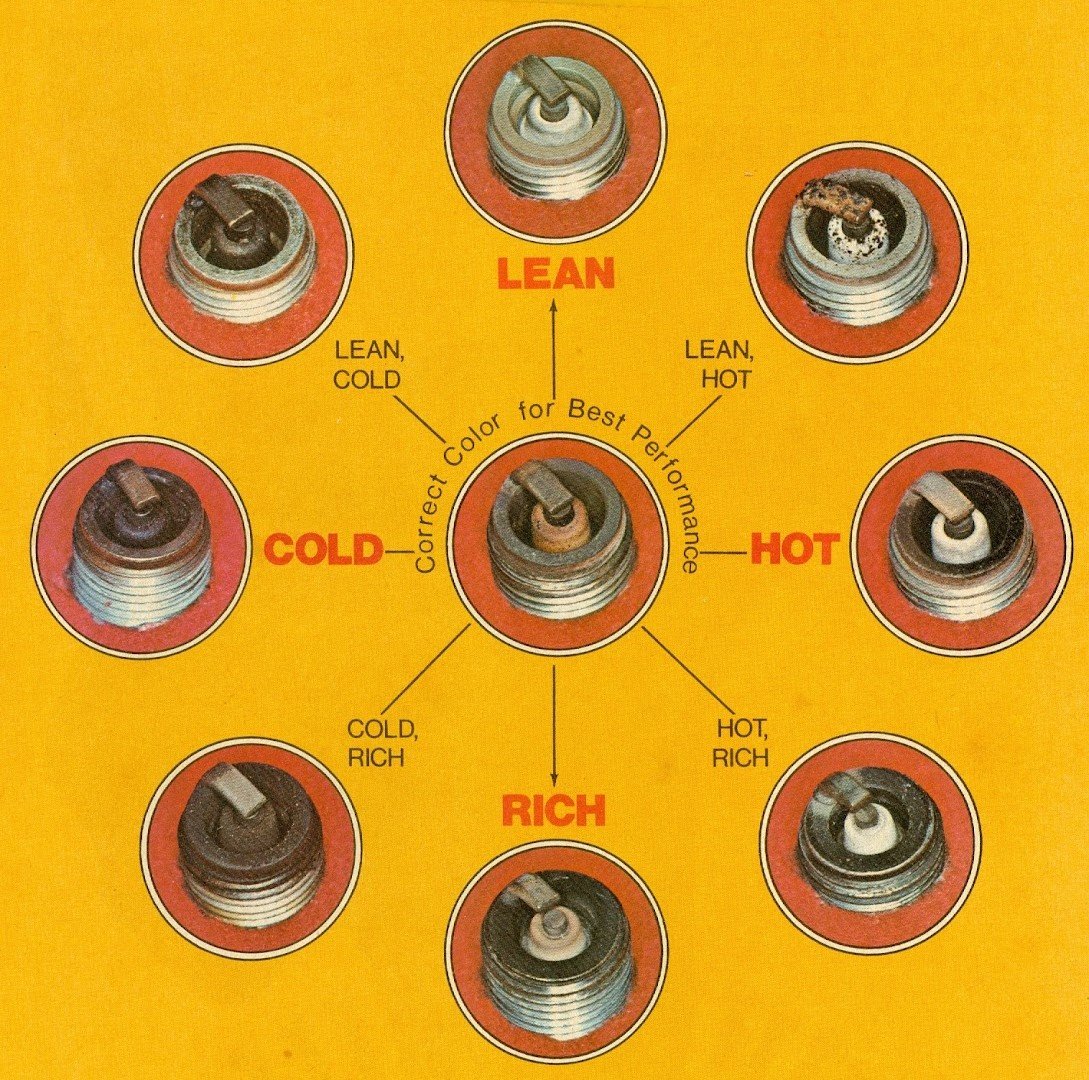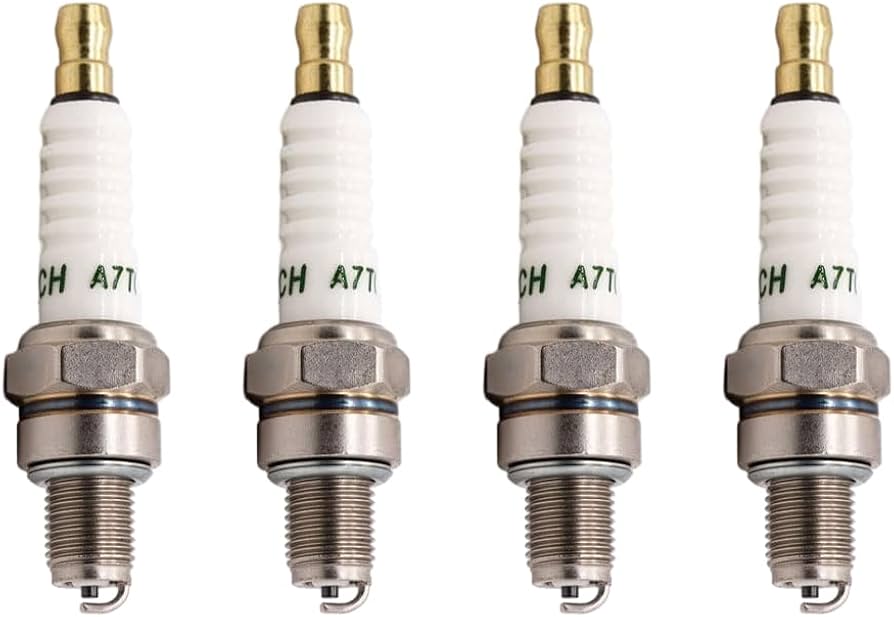Do NGK plugs need anti-seize? No, NGK plugs do not need anti-seize. NGK spark plugs come with a special trivalent plating on the threads that provides corrosion resistance and eliminates the need for additional lubricants, ensuring proper installation and removal without affecting performance.
When you’re working on your vehicle, spark plugs are essential components that play a vital role in engine performance. However, many car enthusiasts and DIY mechanics find themselves asking, “Do NGK plugs need anti-seize?” It’s a common question, and the answer might not be as simple as it seems. To help you understand the importance of anti-seize in spark plug installation, especially when dealing with NGK plugs, this detailed guide will explain everything you need to know about this topic.
In this article, we’ll explain NGK spark plugs, the role of anti-seize compounds, why some people think they’re necessary, and the manufacturer’s recommendations. By the end, you’ll have a clear understanding of whether or not you should apply anti-seize to NGK plugs and how to install them properly.
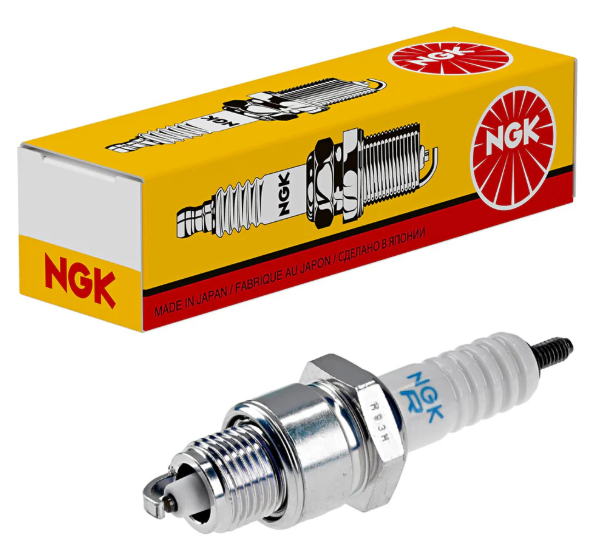
Contents
NGK Spark Plugs
NGK Spark Plugs is a trusted manufacturer that produces a wide range of spark plugs used in automotive, motorcycle, and marine engines. Their spark plugs are engineered with a blend of technology and durability, providing an optimal ignition system that enhances engine efficiency.
The Materials Behind NGK Spark Plugs
NGK spark plugs are manufactured using high-quality materials that ensure longevity and reliability under high temperatures and pressures. Let’s explore some of the primary materials used in their construction:
- Center Electrode: The center electrode is typically made of premium materials like iridium or platinum, which offer better heat resistance and longer lifespan compared to traditional copper electrodes. These materials also enhance performance by providing a stable spark.
- Outer Shell: The outer casing of NGK plugs is made from durable steel or other corrosion-resistant alloys, which help them withstand harsh conditions inside the engine. This tough exterior ensures that the spark plug remains intact even under extreme temperatures.
- Insulator: NGK spark plugs feature ceramic insulators, which prevent electrical leakage and ensure that the spark is directed properly. This is important for maintaining the efficiency of the ignition process.
Why NGK Spark Plugs Are Different
One of the defining features of NGK plugs is their trivalent plating, which provides excellent corrosion resistance. This plating helps to protect the spark plug’s threads from rust and wear, ensuring smooth installation and removal, even after extended use.
With such advanced features and materials, NGK plugs are designed for high performance without the need for additional lubricants or anti-seize. Now that we understand the nature of NGK plugs, let’s discuss the role of anti-seize and whether or not it’s needed.
What is Anti-Seize and Why Is It Used?
Anti-seize compounds are lubricants designed to prevent metal parts from seizing, rusting, or becoming difficult to remove due to heat, corrosion, or friction. They are often used in automotive applications, such as spark plug installation, to make parts easier to install and remove.
Key Benefits of Anti-Seize Compounds
Anti-seize compounds offer several advantages in automotive maintenance, especially when dealing with parts that are exposed to high temperatures and pressures. These benefits ensure smoother installation, protection from corrosion, and easier removal of parts down the line.
- Prevents Seizing and Galling: Over time, metal parts can seize together due to high heat and pressure. Anti-seize helps prevent this by creating a protective barrier between the metal surfaces.
- Easy Removal: Anti-seize compounds make it easier to remove parts after they’ve been in place for a long time. They help to prevent corrosion from binding the parts together.
- Lubrication: By reducing friction between metal parts, anti-seize compounds allow for smoother installation of components.
- Corrosion Resistance: Anti-seize compounds protect against rust and corrosion, which is especially important for parts exposed to the elements or high temperatures.
While anti-seize is useful in many situations, its application to NGK spark plugs is a point of debate. So, do NGK plugs need anti-seize?
Do NGK Spark Plugs Need Anti Seize?
When it comes to installing NGK spark plugs, many people wonder whether anti-seize compounds should be applied. In this section, we’ll explore the manufacturer’s recommendation and why NGK spark plugs are designed to function without the need for anti-seize.
NGK’s Official Recommendation
NGK Spark Plugs does not recommend the use of anti-seize on their spark plugs. According to NGK’s guidelines, their spark plugs are equipped with a special trivalent plating on the threads, which provides built-in corrosion resistance and acts as a release agent when the spark plug is removed. This plating eliminates the need for anti-seize compounds, making the application of these lubricants unnecessary.
Using anti-seize on NGK plugs can cause a range of issues that might affect engine performance. Let’s look at the potential problems that could arise:
Why Should You Avoid Using Anti-Seize?
While anti-seize is commonly used in various automotive applications, it is generally not recommended for NGK spark plugs. In this section, we’ll discuss the potential issues that can arise from using anti-seize with NGK plugs and why it can interfere with their performance.
- Risk of Over-Tightening: Anti-seize reduces friction, which may lead you to over-tighten the spark plug. Over-tightening can cause damage to the spark plug or the threads in the cylinder head, potentially leading to expensive repairs.
- Thread Damage: Spark plug threads are finely engineered for precise fitment. When anti-seize is used, the lubricant may cause the plug to go in too smoothly, leading to excessive torque and possibly damaging both the spark plug and the threads in the engine.
- Heat Dissipation Problems: NGK plugs are designed to dissipate heat effectively. Over-tightening due to anti-seize lubrication can compromise this heat transfer process, potentially leading to engine misfire or damage.
- Voiding the Warranty: Using anti-seize on NGK spark plugs can also void the warranty. NGK clearly states that applying anti-seize or similar lubricants may interfere with the proper functioning of the plugs, and doing so could invalidate any warranty coverage.
Special Cases When Anti-Seize Might Be Useful
Though NGK advises against using anti-seize, there are cases where some car manufacturers might recommend its application. For example:
- Certain Steel Plugs: Some other brands of spark plugs, particularly those without protective coatings, might benefit from anti-seize to avoid corrosion.
- High-Performance Engines: If you are using plugs in a high-performance engine exposed to extreme temperatures, applying a small amount of anti-seize may help ensure that the spark plug is easily removed later.
However, NGK spark plugs have been designed with these conditions in mind, and their unique plating technology eliminates the need for additional lubricants.
How to Properly Install NGK Spark Plugs
To ensure your NGK spark plugs function properly and last as long as possible, it’s important to install them correctly. Here’s a step-by-step guide:
- Clean the Threads: Before installing the spark plug, make sure the threads on both the spark plug and the cylinder head are clean. Any dirt or debris can cause the spark plug to misfire or lead to threading problems.
- Install the Spark Plug Dry: NGK recommends installing the spark plug without using any lubricants or anti-seize. Simply thread the plug into the cylinder head by hand until it is snug.
- Use a Torque Wrench: After hand-tightening, use a torque wrench to tighten the spark plug to the manufacturer’s recommended torque setting. This ensures the spark plug is properly secured without being over-tightened.
- Check the Gasket: Ensure that the spark plug’s gasket is properly seated and not damaged, as this helps to create a proper seal.
Related Article
NGK Spark Plug Gap Chart
NGK Laser Iridium vs Iridium IX
Are NGK Spark Plugs Good?
Frequently Asked Questions
Here are some FAQs about NGK spark plugs and anti-seize –
1. Why does NGK advise against using anti-seize?
NGK advises against it because anti-seize can cause over-tightening, thread damage, and improper heat dissipation, all of which could lead to performance issues or engine damage.
2. What happens if I accidentally use anti-seize on NGK plugs?
If anti-seize is accidentally applied, the spark plug should still work, but it may cause over-tightening during installation, leading to potential thread damage or improper heat dissipation.
3. Are NGK spark plugs different from other brands?
Yes, NGK spark plugs feature special trivalent plating on their threads, which provides corrosion resistance and eliminates the need for anti-seize. Other brands may not have this feature, so anti-seize may be necessary in those cases.
4. Can I use anti-seize on other spark plugs?
While NGK recommends against anti-seize, other brands may allow it. Always check the manufacturer’s guidelines for the specific brand you’re using.
Conclusion
NGK spark plugs are engineered with advanced technology to perform optimally without the need for anti-seize. Their special trivalent plating prevents corrosion and makes future removal easy without causing damage to the threads or engine components.
By following NGK’s recommendations and installing spark plugs correctly, you ensure maximum engine efficiency and performance while avoiding potential issues caused by unnecessary lubricants. Always consult the manufacturer’s guidelines and avoid over-complicating the process with additional compounds like anti-seize when they aren’t needed.

